Professor Mary-Louise McLaws calls for more COVID-19 action
Mosman’s WHO epidemiologist professor Mary-Louise McLaws discusses what we are doing right and what we need to improve in the fight against COVID-19.
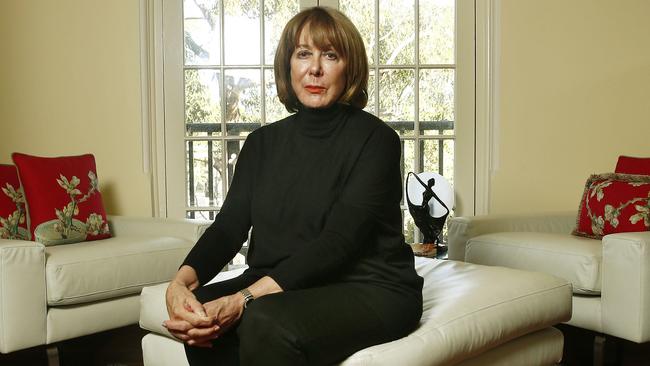
Mosman
Don't miss out on the headlines from Mosman. Followed categories will be added to My News.
After a thorough scrub with hand sanitiser, I press the intercom. Turning up at someone’s home without a proper de-germing these days would be poor etiquette indeed, but the importance of this ritual is more front of mind today.
Prof Mary-Louise McLaws buzzes open the wooden gate of her Mosman home and I receive a warm welcome on reaching the top of the stairs. Given the new normal we are all still adjusting to, neither of us offer a handshake at the door.
The changes are clear in Mosman.
Customer limits in shops, clear Perspex screens at the supermarket and people politely moving aside from each other on the street. Casual public spaces are memories from another era.
There is a shift inside homes too and, as would be expected, a sturdy bottle of medical-grade hand sanitiser sits on the bench top in Prof McLaws’s kitchen.
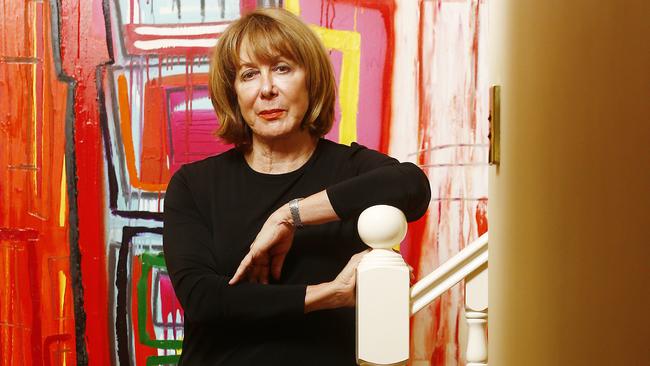
The epidemiologist has become a much-quoted voice for science in the media since the start of the COVID-19 outbreak. All the major news outlets have sought her opinions on virus topics from the flattening of the curve to the dangers of singing in choirs. She explains the situation just as it is without blanketing the reality in scientific jargon.
“I can’t see us living the life that we did for a while,” Prof McLaws says.
And she should know. After all – her credentials are dizzying. She is a member of two World Health Organisation expert advisory panels on the virus and comes with a lifetime of experience in disease outbreaks.
She worked in Hong Kong during the SARS epidemic and reviewed the response to the deadly disease in China. Her infection control research took her around the world and she has worked in Cambodia, Malaysia, Mali, Indonesia, Turkey, Vietnam and many other countries.
With such commitment, experience and knowledge it’s hard to know where to begin; so we take the logical approach. Her career in epidemiology started at Sydney University with groundbreaking research into hospital-acquired infections. This was in the ‘80s when it was fresh territory for scientists and the spectre of antibiotic resistance was emerging.
“It had never been done before in Australia,” she says.
“I was involved in the first study and that’s basically how my career in epidemiology took off.”
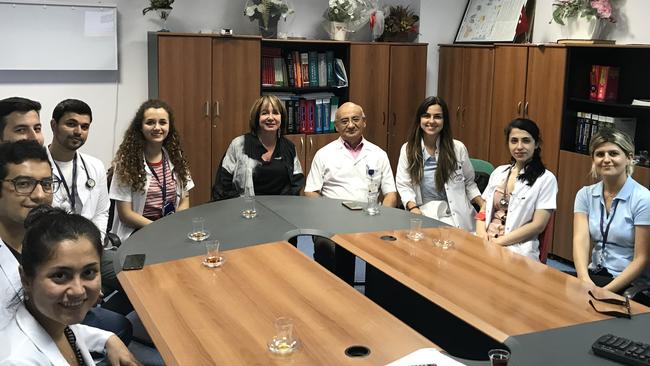
She then joined a pioneering clinic in Surry Hills and came face-to-face with one of the most terrifying pandemics in living memory: HIV. Her research set standards for its time again.
Full-time university life came calling and she joined UNSW as an academic in 1991. She has been there ever since. As someone who describes herself as being addicted to learning, it is the perfect position to be in as she carries out research and shares her passion for the field by mentoring students.
When she speaks about them, she is talking about her family. Prof McLaws isn’t one of those distant dusty professors that PhD candidates struggle to secure time with; she is in it for the long-haul.
Dr Sharon Salmon is currently in Manila working on the WHO’s COVID-19 response and, despite a demanding schedule, was keen to make time to chat about the mentor she affectionately calls Prof.
“She’d probably call us all her children. She is an absolute champion mentor,” Dr Salmon says.
“Prof is an inspirational leader. She has dedicated her life to public health and equally dedicated her life to mentoring the next generation.
“When I was doing my PhD, I was anxious on a publication submission deadline and I needed to be able to contact her. She called me when she was on the top of a mountain in Turkey.”
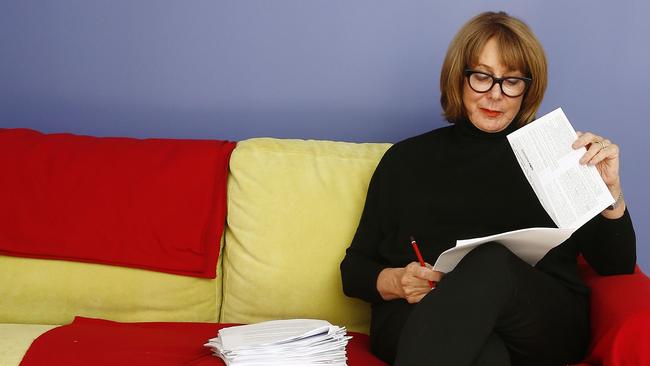
Prof McLaws’s first encounter with a coronavirus outbreak came in 2003. She had been travelling to Hong Kong for several years to teach epidemiology and outbreak investigation to postgrad medical and nursing students.
SARS, a deadly virus from the coronavirus family, emerged in China and spread into the city. Her expertise was called into action and she was asked to identify the response to keep healthcare workers safe at the city’s SARS designated hospital.
SARS was different to COVID-19 even though they are genetically similar. It wasn’t as difficult to contain as patients got sick very quickly, went to hospital and didn’t have a lot of time to transmit it.
As a result, it did not claim as many lives as the current pandemic and was brought under control. A total of 774 deaths were recorded worldwide compared to the growing death toll of hundreds of thousands of people today.
However, there is a major similarity between the two diseases and an uncomfortable list that includes HIV, ebola, bird flu and swine flu. They are all believed to have emerged from animals.
Zoonotic diseases are devastating for humanity and this trail of destruction has prompted Prof McLaws to call for a radical change in human behaviour. She wants a global ban on the live trade of wild and farmed animals, and also a prohibition of eating any animal that is not farmed.
“After SARS I stopped seeing exotic animals on the menu in China. It stopped for a very long time but then it started again,” she says.
“Live trade is abhorrent to me from an infection prevention and from a cruelty perspective.
“I believe we need to outlaw and have very strong fines for trade in any live wild animal including fishing. We can’t keep overfishing the ocean.
“Globally we must outlaw exotic animal trade and wildlife hunting except for those that live an indigenous life.”
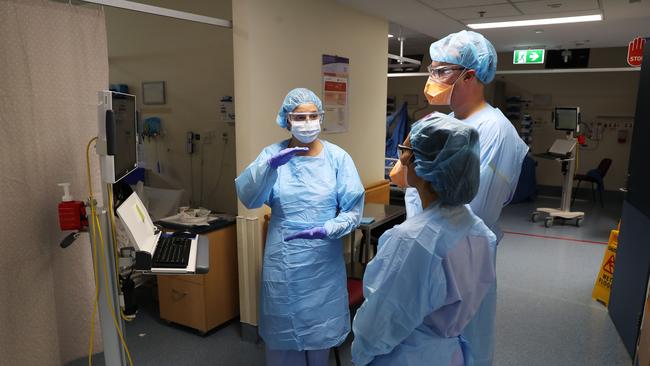
Politics came into play with COVID-19 like no other disease before.
Governments around the world are facing intense criticism of their handling of the crisis as people lose their loved ones and their livelihoods.
The WHO itself has weathered a backlash with claims that it was too slow to respond and was bending to pressure from China.
Prof McLaws was heartbroken by the criticism being fired at WHO but she also believes it could have done better on one major point: border closures. The WHO advised against travel restrictions to countries experiencing outbreaks despite the fact that closing borders successfully contained SARS. She is firmly of the school of going in hard and fast.
“Closing borders of Hong Kong and closing borders around China was an acceptable approach in SARS and the fact that Canada, which refused initially to close its borders, found a very unpleasant experience,” she says.
“I think we could have learned the importance of lockdown very rapidly but the member countries would have known this.”
So why did countries not shut quicker?
“There is a perception in the west, and I don’t have any evidence for this other than long-time work experience, that what happens in Asia stays in Asia, but it doesn’t,” she ponders.
All the same, Australia’s response to the crisis has resulted in a low death rate and it is among a more fortunate list of countries that includes New Zealand, Norway and Denmark.
At the time of writing 126 people have died in Australia and more than 12,000 are known to have contracted COVID-19.
Prof McLaws has criticisms of the government’s response but is keen to point out where they got it right.
“Initially people thought that the government was cruel sending the returned Chinese Australians to Christmas Island, but in fact as an epidemiologist I thought it was humane,” she says.
“The government should have been congratulated for it. It will in history.
“Returned travellers pose a risk to the community even while they are in quarantine because they can spread the virus to the hotel staff. Hotels are not purpose built for quarantine.”
This weakness has been brutally exposed in Victoria. Security staff at quarantine hotels broke the rules and have been blamed for spreading the virus in the wider community. Melbourne has endured a surge of COVID-19 cases and restrictions returned across the city in a bid to bring the clusters under control.
Instead of hotel lockdowns, Prof McLaws believes returned travellers should be sent to a newly-built quarantine station as this would keep both them and staff safe. It is simply inappropriate to expect security staff patrolling hotels to have the expertise and training to stop the spread of the virus.
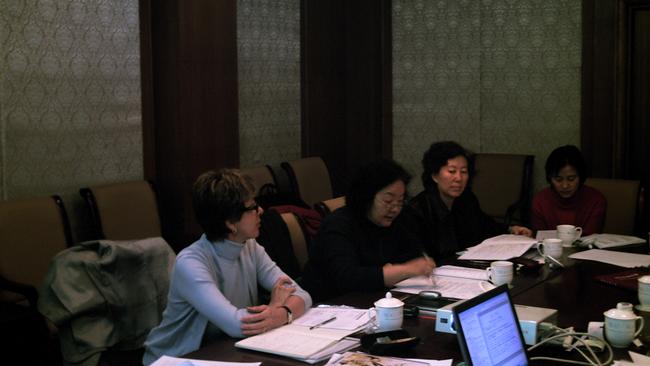
“Returned travellers need to go to a purpose-built facility with highly-trained staff that are not only ensuring the returned travellers remain under mandatory quarantine but are kept safe from each other,” she says.
“We need to develop a facility for the long-term given that this will not be the last pandemic in our lifetime.”
If a major second wave of COVID-19 spreads through Australia, Prof McLaws is confident the public is primed to respond after demonstrating immense co-operation during the initial outbreak. However, she would like to see the government’s medical advisory committees adopt a braver response with pre-emptive rather than reactive decision making. Her case in point is face masks.
The WHO changed its recommendations in early June and now encourages people to wear face masks in crowded public spaces and where there is widespread transmission. Many countries around the world have already brought in mandatory face mask rules.
The official Australian government advice has remained the same since the pandemic started. It does not generally recommend to wear masks except for people at increased risk, such as seniors, and those in areas with community transmission where they can’t maintain physical distance.
Prof McLaws wants the government to go a step further and introduce mandatory masks. This would be for all of Melbourne and every mode of public transport nationwide. It’s about using the science to be one step ahead of the virus.
“If you are sitting in close confinement particularly in planes, buses or trains or anywhere where you can’t keep your distance and people are talking, you need to wear a mask. It’s a very cheap preventive measure that works well,” she says.
“Leaders can change the message and say we now have updated science. This keeps the community primed to understand that with new evidence comes new directions by the leadership.”
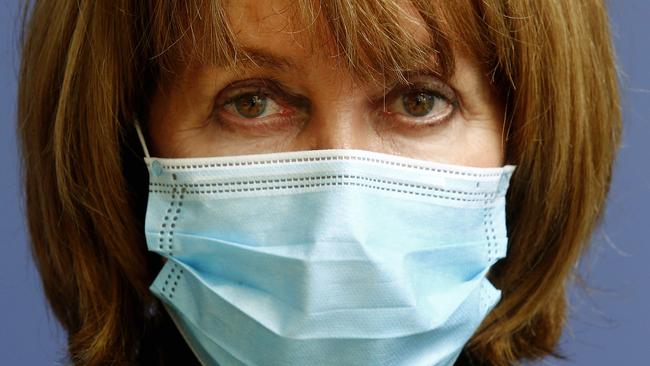
In the longer term, Prof McLaws is hopeful that Australia will enter a regional bubble until a vaccine or a prophylactic is found. She is confident that humans, being “incredibly clever”, will eventually work it out.
For the meantime she is urging people to enjoy one day at a time and to acknowledge that the future will change. This wisdom she draws from years of travelling to countries in crisis and her own family history.
“You have to have hope constantly and you have to enjoy the happiness as it happens,” she says.
“I had a great grandmother from Europe who had to hide from the authorities because she didn’t have a passport in Australia.
“During WWII they had the Defence Force police go around and she had to be hidden all the time because she didn’t have any paperwork.
“So the family grew up with the idea of celebrating the small joys in life because you never know when something unpleasant or untoward would happen. It’s important to do that, even now.”
